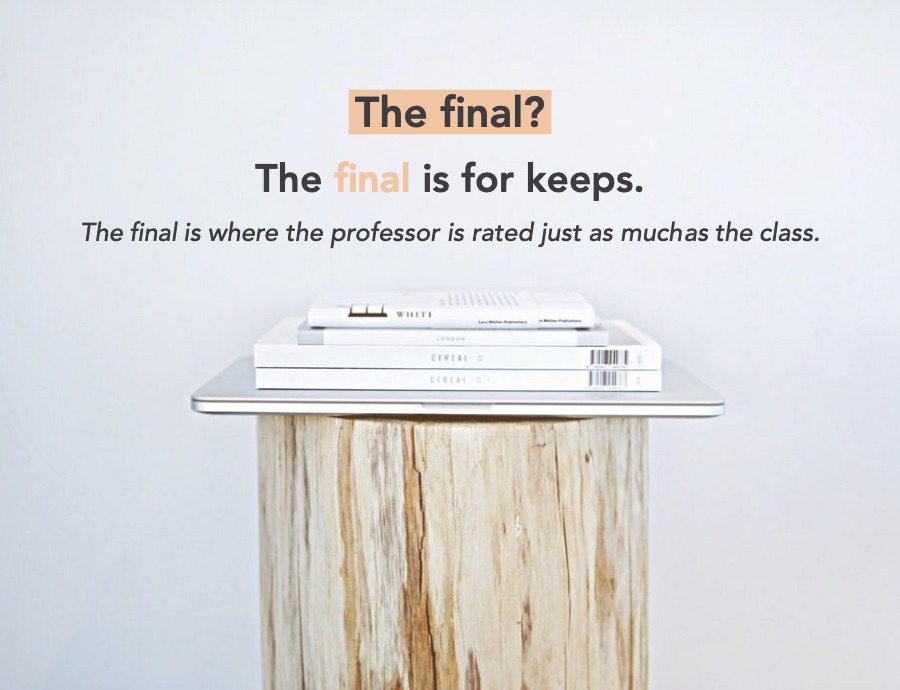When attending lectures for the first time at university, many students are quite taken aback by how little they learn during class. “Why doesn’t the professor just teach us?” or “why are they so bad at explaining everything?” is a question that is asked over and over again.
It doesn’t sound like there would be a big difference between a university professor and a high school teacher. One teaches at university, the other teaches in high school. Same job, different school?
Actually, there’s a world of difference.
A professor’s primary job is to do research.
Most universities are research institutions. So, when a professor is hired at a university, they are hired for their potential ability or proven aptitude towards research. There is no monetary or career incentive for a tenure-track professor to be a good “teacher” or good “lecturer”. The only way for a professor to advance in their career and get promoted is to focus on their research. That means: publications, grants, grad students, etc.
Professors receive zero training as teachers.
Elementary and high school teachers require a minimum of a bachelor’s degree and a provincial teacher’s certificate. In most faculties, university professors require a minimum of a master’s degree or PhD. In engineering, a professional engineering designation is often required. However, no formal education as a teacher is ever required. The only “teacher training” that a professor may have received is during mandatory teaching assistant orientation in grad school.
Professors are sometimes forced to teach courses that they do not want to teach.
Universities operate on a seniority system. So, professors that have been around for longer are given “first dibs” on course selection. Newer professors will then be forced to teach all of the other courses that no one else wants to teach. This can result in a math professor with a PhD in statistics teaching a calculus course. You can imagine that this sometimes doesn’t go so well.
The most important lesson to take away from this article is this: you are responsible for your own learning in university. It is not the professor’s job to teach you. University lectures are designed to give you an overview of the material. It is then up to you to learn the bulk of the material yourself. This can be quite daunting for students who are used to a high school teacher who goes through the material slowly, step-by-step, until every student has mastered the material. Professors do not do this. The responsibility is now yours.
It doesn’t sound like there would be a big difference between a university professor and a high school teacher. One teaches at university, the other teaches in high school. Same job, different school?
Actually, there’s a world of difference.
A professor’s primary job is to do research.
Most universities are research institutions. So, when a professor is hired at a university, they are hired for their potential ability or proven aptitude towards research. There is no monetary or career incentive for a tenure-track professor to be a good “teacher” or good “lecturer”. The only way for a professor to advance in their career and get promoted is to focus on their research. That means: publications, grants, grad students, etc.
Professors receive zero training as teachers.
Elementary and high school teachers require a minimum of a bachelor’s degree and a provincial teacher’s certificate. In most faculties, university professors require a minimum of a master’s degree or PhD. In engineering, a professional engineering designation is often required. However, no formal education as a teacher is ever required. The only “teacher training” that a professor may have received is during mandatory teaching assistant orientation in grad school.
Professors are sometimes forced to teach courses that they do not want to teach.
Universities operate on a seniority system. So, professors that have been around for longer are given “first dibs” on course selection. Newer professors will then be forced to teach all of the other courses that no one else wants to teach. This can result in a math professor with a PhD in statistics teaching a calculus course. You can imagine that this sometimes doesn’t go so well.
The most important lesson to take away from this article is this: you are responsible for your own learning in university. It is not the professor’s job to teach you. University lectures are designed to give you an overview of the material. It is then up to you to learn the bulk of the material yourself. This can be quite daunting for students who are used to a high school teacher who goes through the material slowly, step-by-step, until every student has mastered the material. Professors do not do this. The responsibility is now yours.








